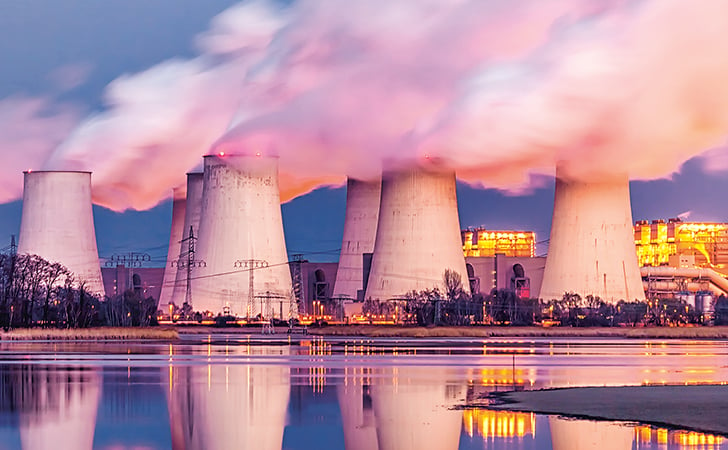Focus: Introduction of our thermal coal policy
Swiss Re supports the worldwide reduction of greenhouse gas emissions and contributes to limiting global warming to 1.5–2°C above pre-industrial levels. To this end, we continually review measures to assist the transition to a low-carbon economy. Reflecting our commitment, in 2015 we signed the Paris Pledge for Action (www.parispledgeforaction.org) to affirm our support for the Paris Climate Agreement.
After a range of measures we have taken over the years in our product development, risk management and operations, we have recently taken a further significant step. In July 2018, we introduced a thermal coal policy for our underwriting, pledging not to provide re/insurance to businesses with more than 30% exposure to thermal coal utilities or mining. The policy is fully integrated into our Sustainability Risk Framework. It applies to both old and new thermal coal projects and across all lines of business (direct, facultative and treaty).

Thermal coal power plants are a significant source of CO2 emissions. In 2018, we introduced a policy for our underwriting, pledging not to provide re/insurance to businesses with more than 30% exposure to thermal coal utilities or mining.
The introduction of our thermal coal policy is the first step towards the development of a carbon risk steering mechanism, to measure our carbon intensity and associated risks embedded in our re/insurance business. Over time, this will help us align our business activities with the Paris Climate Agreement and related Nationally Determined Contributions (NDCs).
Given that there is no established methodology for such a carbon steering model in the re/insurance business, developing a purposeful model will take some time, but will enable us to take a holistic carbon risk perspective on our business and avoid a piecemeal approach.